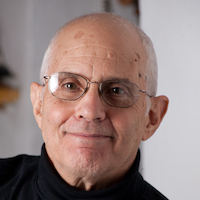It ain’t so new.
I recently came across an essay by journalist Eric Weiner, the author of “Man Seeks God: My Flirtations with the Divine,” in which he says, “We need a Steve Jobs of religion.”
In the piece, published last December in the New York Times, Weiner says we need…
…[s]omeone (or ones) who can invent not a new religion but, rather, a new way of being religious. Like Mr. Jobs’s creations, this new way would be straightforward and unencumbered and absolutely intuitive. Most important, it would be highly interactive. I imagine a religious space that celebrates doubt, encourages experimentation and allows one to utter the word God without embarrassment.
It is an excellent idea, but my message to Eric Weiner is: We already have a “new way of being religious” and we don’t need a Steve Jobs to invent it. It’s been evolving for quite some time now. We don’t need a genius innovator (especially a secretive and proprietary one) because we’ve already had many. And besides, one of the distinguishing features of the new way of being religious is that it’s a grassroots phenomenon, without a founder, an institution or an anointed hierarchy.
It has been rising up in the hearts and minds of individual seekers ever since the days of Ralph Waldo Emerson—who deserves, if anyone does, to be called the Steve Jobs of American religion—and it’s been spreading like kudzu through the soul of America, nurtured by a distinguished parade of Hindu gurus, Buddhist monks, Yoga masters, Christian contemplatives, Jewish mystics, Sufi masters, homegrown philosophers, artists, psychologists, scientists and on and on.
In a sense, Weiner acknowledges this in his essay. He identifies with the Nones, that diverse, loosely linked demographic that claims no religious affiliation and is, surveys tell us, the fastest-growing religious cohort in America. Only seven percent of the Nones call themselves atheists. The rest, presumably, are what we call Spiritual But Not Religious (SBNR).
One could say that the “new way of being religious” is so new that it’s not even called religious—and so not new that it draws on the most ancient of practices.
In fact, long before the term SBNR was coined, the distinguished scholar of religion Frederic Spiegelberg used the phrase “religion of no religion” to describe the same essential phenomenon: individuals seeking direct spiritual experience outside the confines of conventional religion.
Citing social scientists, Weiner makes the mistake of attributing the rise of the Nones to the mixing of religion and politics in recent decades. The Nones, he says, “are reluctant to claim a religious affiliation because they don’t want the political one that comes along with it.” There’s surely some truth to that, but it is highly doubtful that politics is the chief reason that seekers turn away from mainstream religion.
The simple truth is, they look elsewhere when conventional religion does not satisfy their spiritual yearnings. This is an old story, but the advent of globalized communication has now made it possible for massive numbers of people to access authentic alternatives.
Weiner says the Nones “drift spiritually and dabble in everything,” a description that makes them sound spiritually promiscuous. But, in my experience, most SBNRs are not just dabbling, they are probing for teachings that make sense to them and produce tangible results in practice. If they don’t commit to one religious label it’s because they haven’t found one that satisfies all their spiritual needs and they don’t want to be bound to a lifetime contract when they might reap greater rewards through free agency.
Weiner’s lament may really be about the Nones’ lack of community and institutional structure, which, as a direct consequence, deprives them of a voice in the national conversation. I suspect this will change as new ways for independent seekers to come together take shape.
The new forms of community will no doubt be less authoritarian, less dogmatic, less centralized and less hierarchical than traditional institutions.
And they will evolve more from the ground up than the top down. The leadership is multiheaded and diverse—more Mom and Pop entrepreneurship than Walmart-style dominance. In fact, I’m writing this on one of the new forms of spiritual community.
Our new way of being religious may seem chaotic, as most new things do, but it coheres around certain elements: individual choice over institutional decree; inner experience over creed; reason and evidence over faith and dogma; unity and pluralism over separation and tribalism. These trends reverse centuries of religious history, and they bode well for an authentically democratic spirituality—if we continue to develop it with care, discernment and responsibility.
Editor: Lynn Hasselberger











Read 4 comments and reply